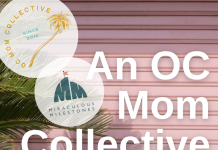 Today, my little man turned six. This produced a cascade of feelings because I both miss my tiny baby and I’m eager to watch him grow. Parenthood is so complicated sometimes. My tiny human isn’t so tiny anymore. He is tall and gangly, and he has many feelings in this little body. He is a smart, funny, kind, outgoing, and fearless little one, and he is honestly one of the most interesting people I’ve ever had the pleasure of knowing. Every day that I watch my baby become a man, I’m so damn proud to be his mama.
Today, my little man turned six. This produced a cascade of feelings because I both miss my tiny baby and I’m eager to watch him grow. Parenthood is so complicated sometimes. My tiny human isn’t so tiny anymore. He is tall and gangly, and he has many feelings in this little body. He is a smart, funny, kind, outgoing, and fearless little one, and he is honestly one of the most interesting people I’ve ever had the pleasure of knowing. Every day that I watch my baby become a man, I’m so damn proud to be his mama.
And I’m also terrified.
I’m scared because the world that he inherits will be one of the most liberating worlds for budding manhood as well as one of the most challenging. This point is illustrated most when my personal and professional worlds combine.
Recently, in a social media group for therapists, the topic came up about what types of clients therapists prefer not to see when they are in private practice. The question was started by a well-meaning clinician in another state who was worried that having an actively suicidal client in a private practice setting was not clinically appropriate because of the fact that she didn’t have after-hours coverage and she was worried that the client may need more services than she could provide as a solo practitioner. Many agreed. This is just a snapshot on how ethical decision-making occurs in outpatient settings, and several commenters advised her to refer to an agency with 24-hour care instead, which she did.
As most social media threads go though, this one took a turn in an unexpected direction.
After the initial question was dealt with, several (all female solo practitioners) therapists mentioned that they would not feel comfortable working with male clients. Many even stated that if they did, they would only do it during certain daylight hours and only if there was someone else in the office.
The underlying message was that being male was inherently scary or dangerous in a one-on-one setting with a female therapist.
It was stated numerous times that females needed to protect themselves from men in these types of intimate situations and that this was a reasonable reason to set these kinds of limits. Now, of course I mentioned that this is hugely biased (and borders on restricting care since most therapists are female). Some women cited experiences of being harassed or worse which solidified their stance, but most simply saw “male” and assigned danger to this role.
As a mama to a boy who will grow into a man, it was extremely disheartening to see that a designated “safe space” of therapy might be out of reach to him at some point in his life.
And clearly this is reflective of larger societal views regarding boyhood in America. At some point, my charming and kind little boy will be perceived as a possibly threatening man, and I’m heartbroken at this thought.
As a woman in our society, I’m also deeply in support of the #MeToo Movement and other societal waves that created a safer and more equal place for men and women to coexist. I am glad that inherent sexism and violence against women is coming to light—finally—and I’m grateful that my daughter can have more advantages than any generation before her. But this excitement loses its luster if the expense is that men are forgotten or vilified.
And I’m truly torn. There is safety at play, and I can respect anyone who exhibits personal agency to protect themselves. But if the cost is to now see all men as inherently dangerous, we’ve erased the good work that the feminist movement has strived for across these last few decades.
We want our young boys to grow up to be men who can be strong and courageous, but also kind and emotionally expressive.
We want the future for boyhood in America to be that they are able to be whomever they want to be, just like we want the same for our daughters. We want to teach them that it’s ok to cry and it’s ok to fight for what you believe in. We want boyhood in America to be able to be free from negative stereotypes and we want them to be able to thrive in their passions.
But to accomplish these goals, we also have to change our narrative for boys just as we have for girls. Equality only works when we bring both sides along for the ride.
I fear that the recent movements that have done such amazing things for women and girls has had the side effect of leaving boys behind in their reconceptualization. And as such, men are still seen as potentially threatening. While I’m not trying to erase statistics and reality for things like sexual assault, harassment, and violence that are tipping the scales against men, I want there to be a world where no one is pre-judged for their gender based on the stereotypes of the few.
I want my daughter and my son to both be afforded the privilege of a blank slate and to be judged by their character and actions.
Only then will I finally be able to sleep at night as a mama. Only then will I be able to rest easy knowing that my boy and my girl can truly be whoever it is they want to be. That is my wish for my baby on his birthday.













Agree 100%. As a proud boy mom, I often feel conflicted when I see “girl groups” at schools (girls run club, robotics club, etc). While empowering girls, we are taking away places for boys. My sons need to feel empowered and have a group where they feel comfortable too. Problem is if I would mention it, I would automatically be shamed as antifeminist and exclusive. This carries into adulthood. My city has leadership programs that are exclusively female, but none that are exclusively male. Shouldn’t men have a chance to learn how to be wise and supportive leaders in a group catered to their needs, in a setting where they feel comfortable to speak? My sons need support and care just as much as other’s daughters. In a world of raising up strong women, let’s not forget about our little men.
Comments are closed.